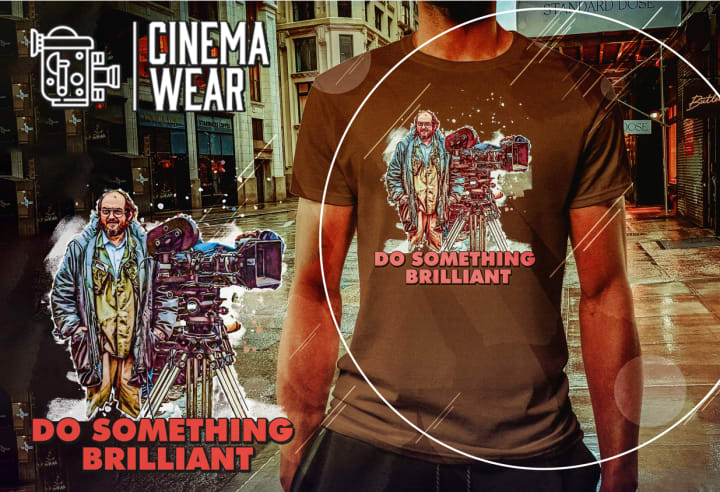
Why French New Wave Cinema Is The Film Movement That Changed Movies Forever
The New Wave is one of the most revolutionary movements in film history. Its films were more naturalistic than previous films and often shot in black & white. They were usually based on real life with location shooting instead of studio sets, which made them look more realistic than other films at the time.
In the late 1950s, a new film movement emerged: the New Wave. Characterized by their stylistic use of unconventional camera angles, Dutch angles, handheld cameras, wide-angle lenses and other camera movements, New Wave films reject traditional filmmaking conventions and bourgeois narrative structures. They also focus on psychologically complex characters who are alienated from their surroundings, often using location shooting and real locations instead of studio sets.
New Wave films were made by a new generation of filmmakers who felt that traditional cinema had become bourgeois and stale. The French government put a price on anything different or innovative in filmmaking, such as if someone used non-traditional camera angles or shot in color instead of black & white.
The New Wave filmmakers rejected these conventions and created their own unique style of cinema which has influenced filmmakers all over the world to this day.
The French New Wave might be the most important film movement of all-time. It's not because of how many people saw the films, or even how many directors it inspired. It's because of how far its influence can be felt—even in movies today. The French New Wave was a style and approach to cinema that changed everything we know about making movies, and filmmakers are still discovering new ways to make use of those lessons today.
French New Wave cinema was characterized by a group of young filmmakers who felt that traditional cinema had become bourgeois and stale. They wanted to make films that spoke to their generation and their concerns, but did so in a way that would also be relevant for years to come.
They used handheld cameras, natural lighting, jump cuts, and other techniques to get an unpolished look that reflected the desperation they felt about the world around them. These techniques were used by filmmakers like Jean-Luc Godard, Francois Truffaut, Agnes Varda, Eric Rohmer, Claude Chabrol, Alain Resnais, Jean-Pierre Melville, Jacques Rivette, Chris Marker and Louis Malle—all of whom you should probably know if you want to call yourself a true cinephile
French New Wave Cinema was a fresh, new style of filmmaking that emerged during the 1950s in France. While the French government put a price on anything different or innovative in filmmaking, such as if someone used non-traditional camera angles or shot in color instead of black & white, French New Wave Cinema broke all of those rules by doing exactly that: using non-traditional camera angles and shooting in color.
These innovative French filmmakers were young but determined to make their voices heard through their films. They were passionate about their craft and ready to shake up the film industry for good. They wanted nothing more than for the world to see how groundbreaking and unique their new movies were. And that's exactly what happened: when French New Wave Cinema became known around the world, it changed movies forever.
Since the first film was ever made, movies have been a way for storytellers to convey complex messages. In the 1950s, French filmmakers and critics began to feel that traditional filmmaking wasn't enough to tell their stories. They felt constrained by the rules of cinema and sought to break those rules with a new form of filmmaking, which became known as the French New Wave. This film movement started in France in 1958 and continued into the early 1970s, and it has influenced filmmakers all over the world to this day.
The New Wave filmmakers rejected traditional filmmaking conventions and created their own unique style of cinema. These films often featured characters who struggled with their identity and were caught up in chaotic events beyond their control. The directors used unconventional methods like improvised dialogue and unconventional camera movements to create a sense of spontaneity, which made events on screen feel more real and visceral. They also used non-linear narratives, allowing them to experiment with the way they told their stories through film.
New Wave films are widely regarded as some of the most influential films of all time, and many famous directors started out as part of this movement. Their work inspired other filmmakers around the world during and after this period, including Martin Scorsese, Steven Spielberg and Francis Ford Coppola
The New Wave was a cultural movement that changed movies forever and continues to influence filmmakers all over the world to this day.
The French New Wave finally bucked the Hollywood studio system by embracing the power of the individual filmmaker to tell his or her own story, and making that story as innovative and unique as possible. Honoring these unique artistic visions was more important than mass commercial appeal. The New Wave completely changed the way movies were made, opening up a world of possibilities for filmmakers everywhere. The freedom of storytelling and the power of artistic vision are still inspiring filmmakers today.

The movie season is here. Check out the new collection of awesome collection of movie-themed accessories and apparel. Use the code cinemawear20 to get 20% off on anything.
About the Creator
tacaj25
Spent a year buying and selling plush toys for no pay. Trained in the art of merchandising inflatable dolls in Los Angeles, CA. Spent childhood working on action figures in Orlando, FL.






Comments
There are no comments for this story
Be the first to respond and start the conversation.